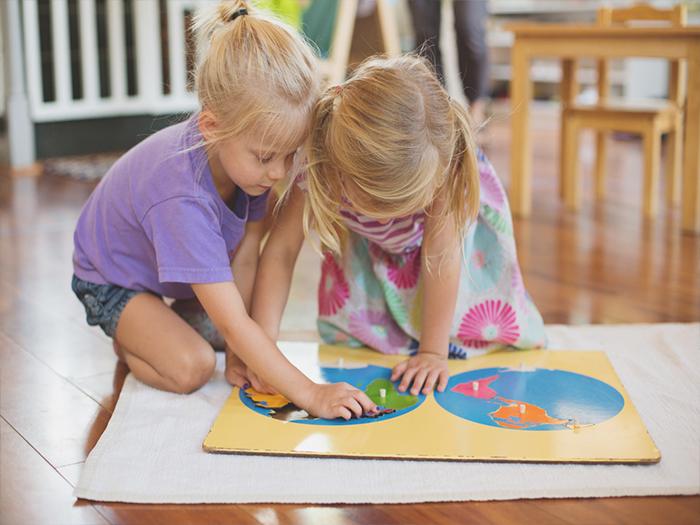“Preventing war is the job of politicians, keeping peace is educators!”
M. Montessori
Seeking ways to agree with each other and expressing ourselves forms the basis of Montessori Educational Philosophy. Children who are aware of their own feelings and thoughts and know the ways to express them can only create a peaceful world.
Considering that a large part of the socio-emotional development of children is completed in the pre-school period, it can be easily seen how important it is to internalize ‘peace’ in these periods when our character is shaped. In order to internalize ‘peace’, we must first understand what ‘peace’ is, how we can create and maintain a peaceful environment. Next month, we will be discussing the issue of ‘Peace’ in particular. In this context;
Peace stick (olive branch); Our students, who do not agree on any subject or disturb each other, go to a corner of the classroom accompanied by a teacher. Our student, who holds the olive branch in his hand, has the opportunity to convey his experience, his feelings and thoughts about the event to his other friend. Then, our other student conveys his feelings and thoughts. The teacher’s job is to encourage them to listen to each other respectfully and patiently and to help them resolve the problem among themselves.
Some of our work;
-How and when should we say ‘Sorry’?
-How should we seek help from a friend or adult?
-If we want to be alone, how should we tell our friend?
-What should we do when we are angry?
-How can we watch someone else’s work?
-How should we welcome a visitor?
We need patience and time to create an environment of peace and ensure its sustainability. We ask you to have conversations in your homes that convey the importance of peaceful solutions, friendship, friendship and empathy, and be a role model for them in this regard. In time, we will begin to see that the peace environment that our students internalize is more reflected in their behaviors.
